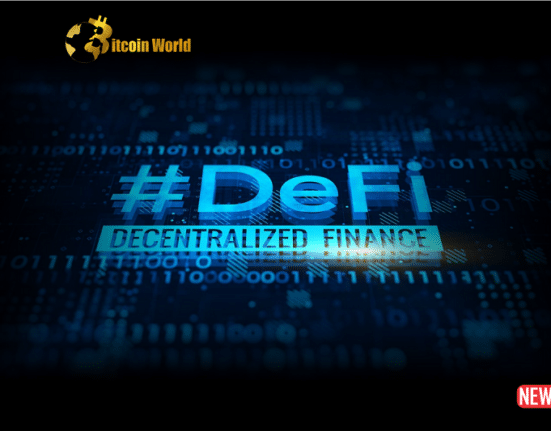The realm of finance and accounting is on the cusp of a transformative revolution, driven by the rise of decentralized finance (DeFi) and accounting. This groundbreaking movement has the potential to reshape the very foundations of financial systems, offering a paradigm shift towards a more transparent, accessible, and democratic financial infrastructure.
DEFI: REDEFINING FINANCIAL INTERMEDIARIES
DeFi, a blossoming ecosystem of financial applications built upon blockchain technology, is poised to eliminate the need for traditional intermediaries like banks and institutions. Instead, DeFi harnesses the power of smart contracts to automate and execute financial transactions, empowering individuals to take control of their finances.
Traditional financial systems often rely on intermediaries to facilitate transactions and provide access to financial services. However, these intermediaries can introduce inefficiencies, complexities, and potential risks. DeFi, by eliminating the need for intermediaries, offers a more streamlined, secure, and cost-effective alternative.
ACCOUNTING: EMBRACING TRANSPARENCY AND SECURITY
Blockchain-based accounting, an integral part of DeFi, ushers in a new era of transparency and security. Traditional accounting systems, prone to errors and manipulation, are being superseded by tamper-proof, auditable records maintained on distributed ledgers.
Blockchain technology provides a robust and immutable record-keeping system, ensuring that financial transactions are transparent and verifiable. This enhanced level of transparency fosters trust and accountability, empowering individuals and businesses to make informed financial decisions.
IMPLICATIONS FOR THE FINANCIAL LANDSCAPE
The emergence of DeFi and accounting has profound implications for the financial landscape, introducing a paradigm shift that redefines access, transparency, and cost-efficiency:
- Increased Financial Inclusion: DeFi democratizes access to financial services, reaching the unbanked and underbanked populations worldwide. By eliminating geographic and institutional barriers, DeFi empowers individuals to manage their finances independently.
- Enhanced Transparency: Blockchain-based transactions provide an unparalleled level of transparency, enabling real-time tracking and auditing of financial activities. This transparency fosters trust and accountability, reducing the risk of fraud and manipulation.
- Reduced Transaction Costs: By eliminating intermediaries, DeFi significantly reduces transaction costs, making financial services more affordable for individuals and businesses. This cost-efficiency is particularly beneficial for cross-border transactions, where traditional intermediaries can levy hefty fees.
CONSIDERATIONS FOR ADOPTION AND IMPLEMENTATION
While DeFi and accounting present immense potential, there are crucial considerations for their adoption and implementation:
- Regulatory Framework: A clear and supportive regulatory framework is essential to foster trust and ensure responsible innovation in the DeFi space. Governments and regulatory bodies need to collaborate to develop frameworks that balance innovation with consumer protection.
- Security and Risk Management: Robust security measures and risk management protocols must be in place to safeguard user funds and prevent fraudulent activities. DeFi protocols need to employ advanced security practices and implement robust risk management systems to mitigate potential threats.
- Education and Awareness: Widespread education and awareness initiatives are needed to equip individuals with the knowledge and skills to navigate the DeFi landscape confidently. This includes understanding the risks and opportunities associated with DeFi, as well as the technical aspects of blockchain technology.
OPPORTUNITIES FOR DEVELOPMENT AND INNOVATION
The convergence of DeFi and accounting presents a fertile ground for development and innovation, opening new avenues to address financial challenges:
- Decentralized Exchanges (DEXs): DEXs enable peer-to-peer trading of cryptocurrencies and digital assets without intermediaries. This eliminates the need for centralized exchanges, which are often plagued by liquidity issues and security concerns.
- Decentralized Lending and Borrowing: DeFi platforms facilitate lending and borrowing of cryptocurrencies, providing alternative sources of financing for individuals and businesses. This decentralized approach can offer lower interest rates, faster access to funds, and greater transparency compared to traditional lending institutions.
- Decentralized Insurance: DeFi insurance protocols offer innovative risk management solutions, leveraging blockchain technology to automate payouts and provide seamless insurance coverage for participants in the DeFi ecosystem. This decentralized approach can reduce costs and improve efficiency.
DEFI AND ACCOUNTING
DeFi and accounting represent a transformative force, revolutionizing the way we interact with financial systems. By embracing decentralization, transparency, and security, this emerging ecosystem holds the potential to democratize finance, enhance financial inclusion, and drive innovation across the financial landscape.
As DeFi and accounting continue to evolve, we can expect to witness a paradigm shift in the financial world, shaping the future of finance and accounting. We are at the dawn of a new era where financial systems are becoming more accessible, transparent, and efficient. DeFi and accounting are playing a pivotal role in this process.














